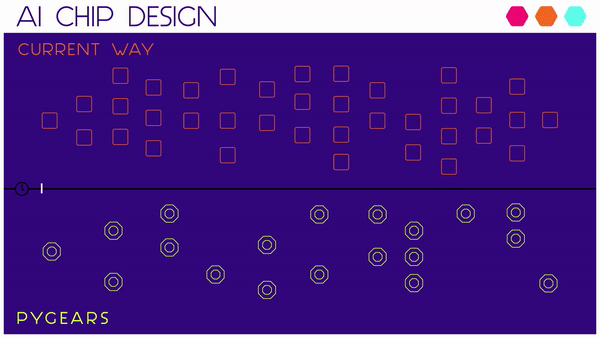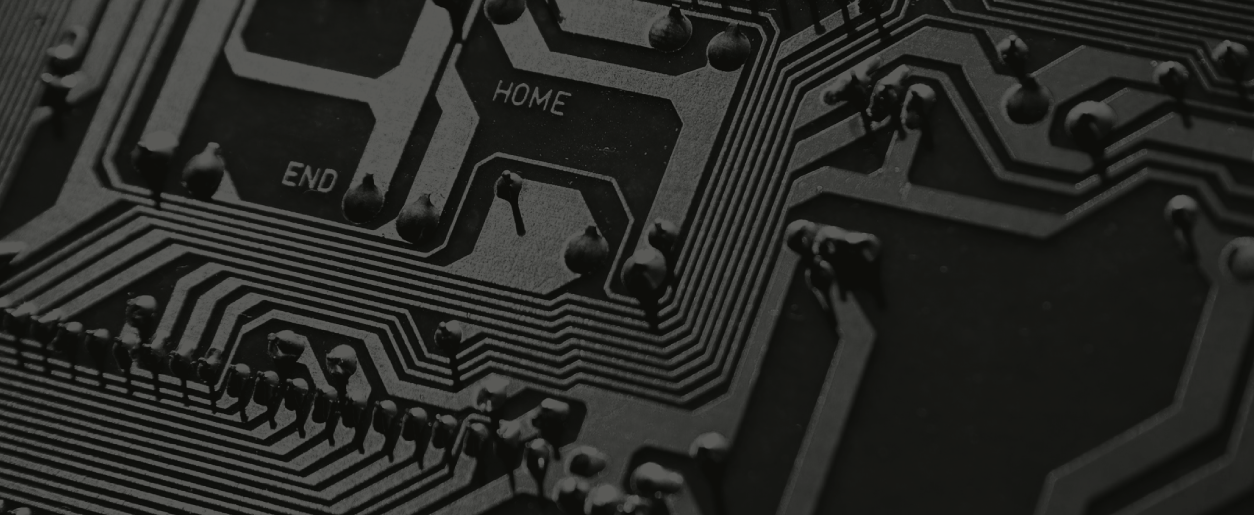Los Angeles, California – March 14th, 2022 – PyGears, a new hardware description language, has been introduced at UCLA in order to implement the idea of agile chip design based on reusable components and high-level Python constructs. PyGears comes as a response to the rapidly evolving software world, which requires hardware design to be in step with the needs of a scalable and intelligent future.

By adopting it in the VLSI Signal Processing course, the UCLA Samueli School of Engineering started to build a community that observes hardware through software paradigms, with the goal of accelerating hardware design and verification, by using more agile and composable modules.
“Chip design is getting more complex, with increasing costs and longer development cycles,” said UCLA electrical and computer engineering professor Dejan Markovic, PhD. “PyGears addresses these challenges by adopting a modular build of hardware out of reusable components, which are built by a community of like-minded contributors. This works very well for small and large engineering teams alike. Hardware design and verification is based on the Python environment, reducing the barriers between software and hardware domains. The vision is to enable software people to code hardware.”
Chip design is getting more complex, with increasing costs and longer development cycles. PyGears addresses these challenges by adopting a modular build of hardware out of reusable components, which are built by a community of like-minded contributors.
Dejan Markovic, PhDUCLA electrical and computer engineering professor
“Software’s greatest limitation is the relatively slow rate of hardware evolution,” said Shahin Farshchi, partner at Lux Capital. “PyGears stands on the shoulders of giants to accelerate hardware design closer to the speed of ‘coding,’ which will lead to magical new use cases that will underpin market-defining products and companies.”
Software’s greatest limitation is the relatively slow rate of hardware evolution. PyGears stands on the shoulders of giants to accelerate hardware design closer to the speed of ‘coding,’ which will lead to magical new use cases that will underpin market-defining products and companies.
Shahin Farshchipartner at Lux Capital
Bogdan Vukobratovic, PhD, creator of PyGears and Head of R&D at Anari AI states that the current tooling industry favorizes low-level optimization and low-level control over all components in hardware development. On the other side, PyGears provides control of all aspects up to the lowest layers, making the process multiple times more efficient. He also emphasizes that building complex architectures requires systems with more agility in development.
“PyGears was born in an effort to capture all good practices that I found useful during my career in a tool that could dramatically speed up the hardware implementation of complex architectures, especially if they are related to AI paradigms,” said Vukobratovic. “It is a free and open-source project that should be a good start in creating the next generation chip design, but that goal requires all of us to contribute to and determine the direction of hardware development. Otherwise, the AI world will not be sustainable in the future.”
PyGears is a free and open-source project that should be a good start in creating the next generation chip design, but that goal requires all of us to contribute to and determine the direction of hardware development. Otherwise, the AI world will not be sustainable in the future.
Bogdan Vukobratovic, PhDcreator of PyGears and Head of R&D at Anari AI
According to Boris Murmann, PhD professor at Stanford University, “The development of new hardware design tools can strongly benefit from open-source solutions. To get the hardware industry out of the Stone-Age and make it more agile, we need new concepts shaped by the community.”
The development of new hardware design tools can strongly benefit from open-source solutions. To get the hardware industry out of the Stone-Age and make it more agile, we need new concepts shaped by the community.
Boris Murmann, PhDprofessor at Stanford University
According to Boris Murmann, PhD professor at Stanford University, “The development of new hardware design tools can strongly benefit from open-source solutions. To get the hardware industry out of the Stone-Age and make it more agile, we need new concepts shaped by the community.”
Except for UCLA students and other universities, PyGears team has opened the community to hardware teams and individuals interested in improving the HDL, making hardware design more efficient and result-oriented.
More about PyGears: pygears.org





